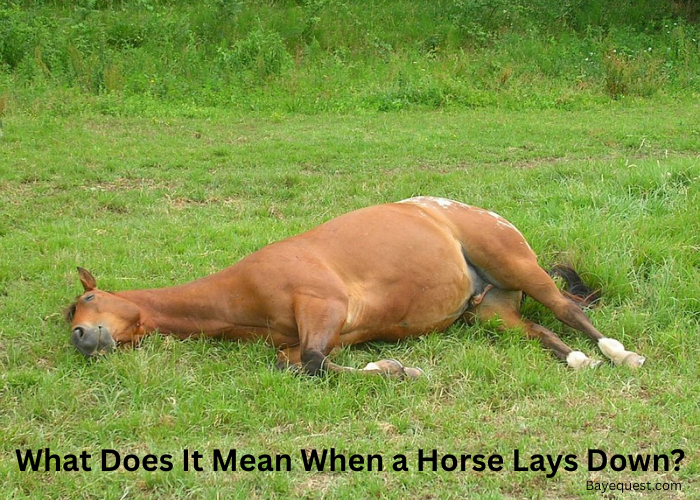Horse owners love spoiling their four-legged partners with tasty treats, and fruit is often at the top of the list.
However, one fruit that always sparks curiosity is cantaloupe. With its sweet, juicy flavor and refreshing bite, this summertime favorite is irresistible to us. But does it deserve a place in your horse’s diet?
In this guide, we’ll break down everything you need to know before sharing cantaloupe with your horse – from its health benefits and potential risks to timing and portions. Let’s jump in!
Can Horses Eat Cantaloupe? Key Takeaway
Yes, horses can eat cantaloupe safely, and many enjoy its sweet, refreshing taste as an occasional treat. However, the soft orange flesh is the only part that should be offered. The tough rind can be difficult to digest and poses a choking risk, while seeds may cause blockages if eaten in large amounts.
Are Cantaloupes Good for Horses?
Yes, cantaloupe is good for horses. Like most melons, it is high in water content, making it a hydrating option during hot weather.
It’s also naturally sweet, which makes it an easy way to entice picky eaters or reward your horse after training.
That said, not every part of the cantaloupe is suitable for horses. The orange flesh is the safest portion to feed, while the rind and seeds are best avoided.
Although a horse may nibble at the rind without immediate harm, it’s tough, fibrous, and harder to digest. In some cases, it can even pose a choking hazard if swallowed in large pieces.
Seeds, though not toxic, are also better left out to prevent potential blockages.

How Many Cantaloupes Can a Horse Eat?
A horse should only eat cantaloupe in small amounts as an occasional treat rather than a regular part of its diet.
In most cases, one to two cups of bite-sized cantaloupe chunks, roughly the amount from half a small melon, is plenty for a full-sized adult horse in a single serving.
Feeding more than this can introduce too much sugar, potentially leading to digestive upset, weight gain, or metabolic issues over time.
It’s best to offer cantaloupe no more than once or twice a week. Always remove the rind and seeds before feeding to ensure it’s safe and easy to digest.
Nutritional Value of Cantaloupe for Horses
Cantaloupe is more than just a refreshing snack; it also comes packed with nutrients that can benefit horses when fed in moderation. These nutrients include;
Vitamin A
One of the standout nutrients in cantaloupe is vitamin A, which is important for maintaining healthy skin, coat, and vision in horses.
This vitamin also supports immune system function, helping horses fend off infections.
Vitamin C
Alongside vitamin A, cantaloupe is rich in vitamin C, an antioxidant that plays a role in tissue repair and boosts overall health.
While horses naturally produce their own vitamin C, an extra boost from fresh fruit supports recovery during periods of stress or illness.
Potassium
Cantaloupe provides a healthy dose of potassium, a vital electrolyte for horses. Potassium helps regulate muscle contractions and fluid balance, making it especially useful in hot weather when horses may sweat excessively.
Fiber
Though not as fibrous as hay or grass, the dietary fiber in cantaloupe supports digestive health by promoting steady gut movement.
A healthy digestive system is the foundation of equine well-being.
Minerals
Cantaloupe contains trace minerals such as magnesium and folate, which play roles in nerve function and energy metabolism.
While these nutrients are already available in a balanced equine diet, the addition of cantaloupe can be a safe way to provide variety and small nutritional boosts.
Benefits of Feeding Horses Cantaloupe
Cantaloupe may be a simple fruit, but it comes with several meaningful benefits for horses when served mindfully.
Beyond its sweet taste, it supports hydration, provides nutritional boosts, and even enriches your horse’s daily routine. Let’s look at the key advantages of adding this melon to a horse’s treat list.
Hydration
One of the biggest benefits of cantaloupe is its hydration value. With over 90% water content, it’s an excellent way to help horses stay refreshed during hot weather.
This is particularly helpful after exercise or turnout on warm days, when horses lose fluids and electrolytes through sweat. Offering cantaloupe in small amounts encourages fluid intake while also supplying potassium to aid electrolyte balance.
Nutritional support
While cantaloupe isn’t a replacement for a balanced diet, its nutrient profile makes it more than just a sugary treat.
Horses benefit from the added antioxidants and vitamins that help keep their coats shiny, their digestion steady, and their immune systems strong.
Low-calorie snack
In moderate portions, cantaloupe is a healthier alternative to processed treats or sugar cubes. This makes it the perfect reward for training sessions or groundwork, offering horses a tasty incentive without adding unnecessary calories to their diet.
Adds enrichment and variety
Horses enjoy variety in their diet, and safe fruits can break the monotony of hay and grain. Introducing cantaloupe occasionally stimulates a horse’s interest and provides mental engagement.
Improves horse-owner bonding
Sharing a treat that’s sweet, refreshing, and safe can create positive associations, whether during grooming, training, or through spending time together.
Horses often look forward to special snacks, and cantaloupe’s unique flavor makes it a memorable option.

How to Safely Feed Cantaloupe to Horses
Proper preparation and portion control are key to making sure your horse enjoys cantaloupe without any negative side effects. Here’s a step-by-step guide to offering cantaloupe safely.
Step 1: Wash the cantaloupe thoroughly
Even though you’ll likely remove the rind, washing helps get rid of dirt, pesticides, or bacteria that may be present on the surface. Horses are sensitive to contaminants, and keeping the fruit clean adds an extra layer of safety.
Step 2: Remove the rind and seeds
The flesh is the only part of the cantaloupe that should be fed to horses. Cutting away the rind reduces choking hazards and digestive problems, while removing seeds prevents any chance of intestinal blockages.
Step 3: Cut the cantaloupe into small, bite-sized pieces
Horses don’t always chew their food thoroughly. So, larger chunks can become lodged in the throat.
Smaller pieces are not only safer but also make it easier to control portion sizes. If you’re hand-feeding, keep your palm flat to avoid accidental nips.
Step 4: Offer moderate portions
A few chunks, roughly a handful or two, is plenty for a single serving. For full-sized adult horses, this might amount to about one to two cups of cantaloupe pieces. For ponies, minis, or young horses, cut that amount in half.
Additional Tips
Time it right
The best strategy is offering cantaloupe as a light treat after training, during hot weather, or alongside other safe fruits and veggies. Avoid giving it right before strenuous exercise or in large amounts all at once.
Most importantly, treats should never interfere with regular meals of hay, grass, or grain.
Introduce cantaloupe slowly
Offer just a small piece if it’s your horse’s first time trying it, and observe how the horse reacts. Most horses will tolerate it well, but it’s wise to watch for signs of digestive upset like gas, loose manure, or discomfort.
Risks and Precautions When Feeding Cantaloupe to Horses
While cantaloupe is generally safe for horses, there are a few important risks and precautions that you should keep in mind.
The most significant concern is sugar content. Cantaloupe, though not excessively sugary compared to some fruits, still contains natural sugars that can be problematic for horses prone to laminitis, obesity, equine metabolic syndrome (EMS), or insulin resistance.
Owners of at-risk horses should either avoid cantaloupe altogether or offer it in very limited quantities under veterinary guidance.
Another risk lies in the rind. While not toxic, the rind is thick, fibrous, and difficult for horses to chew.
Moreover, large pieces may present a choking hazard, especially for greedy eaters that don’t chew thoroughly. For safety, it’s best to remove the rind before offering cantaloupe to your horse.
The seeds are another area of caution. Unlike some fruits that contain toxic pits, cantaloupe seeds aren’t poisonous.
However, feeding a large number of them could still cause problems, particularly blockages in smaller horses or ponies. Most owners prefer to remove the seeds entirely to eliminate any risk.
Spoiled or moldy cantaloupe also presents a danger. Horses have sensitive digestive systems, and eating rotten fruit can trigger colic, diarrhea, or even toxicosis in severe cases.
Always check the fruit for freshness before feeding, and discard any cantaloupe that smells sour, feels mushy, or shows signs of mold.
Finally, overfeeding cantaloupe can lead to stomach upset, even in otherwise healthy horses, causing gas, loose stools, or mild colic symptoms.
To avoid this, cantaloupe should remain an occasional treat rather than a daily addition to the diet.

Cantaloupe Vs Other Fruits for Horses
Since cantaloupe is just one of many fruits that horse owners can safely share with their animals, it’s helpful to understand how it stacks up against other popular options.
Here’s how it compares to other popular fruits:
Cantaloupe vs apple
Compared to apples, cantaloupe is lower in sugar and softer in texture, which makes it easier for some horses to chew. Apples, however, are more widely available and convenient, though their seeds should be avoided due to trace cyanide content.
Interesting read: Are Apples Safe for Horses?
Cantaloupe vs watermelon
Watermelon has slightly less sugar than cantaloupe. But its seeds and rind present the same choking or digestion risks as cantaloupe, meaning preparation is equally important. The two offer a similar level of hydration.
Cantaloupe vs banana
Bananas are more calorie-dense than cantaloupe, and also provide quick fuel for active horses. Cantaloupe, on the other hand, is a lighter option that won’t add as many calories, making it better suited for horses that need weight management.
See also: Can Horses Have Bananas?
Cantaloupe vs pears/strawberries
Pears and strawberries are horse-friendly fruits, both rich in fiber and antioxidants. Pears, however, should be fed sparingly due to their higher sugar levels, while strawberries, though low in sugar, can be costly to feed in larger amounts.
Cantaloupe strikes a middle ground, offering a sweet taste, hydration, and moderate calories without the downsides of high expenses or excessive sugar.
Overall, cantaloupe offers a refreshing balance of hydration, sweetness, and nutrition. It may not replace the convenience of apples or the quick energy of bananas, but it holds its own as a seasonal treat that horses often enjoy.
FAQs
Can horses eat cantaloupe rind?
No. Technically, the rind isn’t toxic, but it’s tough, fibrous, and difficult for horses to chew and digest. Large chunks can become a choking hazard, and even small amounts may lead to mild digestive upset. For safety, it’s best to remove the rind before offering cantaloupe.
Can horses eat cantaloupe seeds?
No. Though not poisonous, cantaloupe seeds don’t add any nutritional value to horses and can present a minor risk of blockage if eaten in large quantities. It’s best to scoop out the seeds before serving cantaloupe to keep the treat as safe as possible.
Can foals eat cantaloupe?
It’s not advisable to feed cantaloupe to foals. Their digestive systems are still developing, and introducing sugary fruits too early can cause digestive upset. Wait until the horse is mature before offering cantaloupe or any non-essential treats.
Can horses eat cantaloupe daily?
No. Cantaloupe should be considered an occasional treat, not a daily snack. Feeding it too often can add unnecessary sugars to the diet and may disrupt the natural balance of gut bacteria. A few small pieces once or twice a week is plenty for most horses.
Is cantaloupe good for horses with metabolic issues?
No. For horses with conditions such as insulin resistance, equine metabolic syndrome, or laminitis, cantaloupe may not be the best choice as the natural sugars can complicate their health management. In such cases, it’s safest to avoid cantaloupe and stick with low-sugar treats approved by a veterinarian.
Conclusion
Cantaloupe can be a safe, healthy, and refreshing treat for horses when offered in moderation. By following the right precautions, you can safely introduce this melon into your horse’s treat rotation, offering them variety, nutrition, and enjoyment, while still protecting their overall health.








